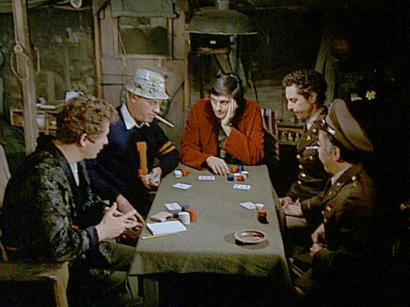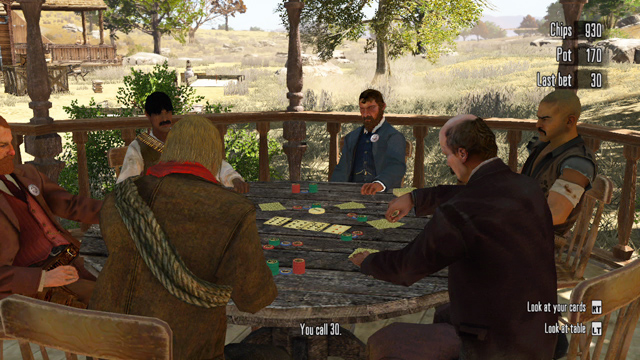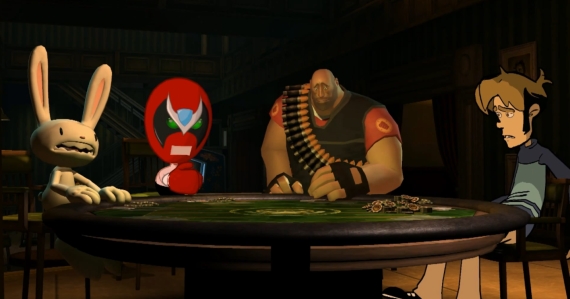This post has not been edited by the GamesBeat staff. Opinions by GamesBeat community writers do not necessarily reflect those of the staff.
 When MASH surgeons need to do something with their hands, they play cards. It's cool, it's tense, and it adds some action to dialogue scenes. Gambling is full of bold-sounding terms like "no limits" and "aces high," and it's inherently more exciting than drinking or smoking (two activities which directors rely on for visual seasoning).
When MASH surgeons need to do something with their hands, they play cards. It's cool, it's tense, and it adds some action to dialogue scenes. Gambling is full of bold-sounding terms like "no limits" and "aces high," and it's inherently more exciting than drinking or smoking (two activities which directors rely on for visual seasoning).
Card games have found their way into Red Dead Redemption, Star Wars: Knights of the Old Republic, Grand Theft Auto: San Andreas, and just about any other game big enough to fit them. But instead of adding some activity to character-driven sections, they usually isolate the scenes and block out the worlds surrounding them. Red Dead Redemption's outside tables were an ideal setting for Texas Hold 'Em, but the witty writing from the cut-scenes had gone.
Do you remember playing pool with your cousin Roman in GTA 4? You'd pick him up, drive him somewhere, play some pool, and then drive him back. In the car, you'd share a natural conversation and learn a little about him. In the pool hall, you'd both turn into robots that barely spoke. It was awkward and alienating.

Telltale Games has learned from Hollywood and made a poker game where dialogue is king. Released earlier last week, Poker Night at the Inventory leverages the celebrity status of several famous video-game characters: Tycho Brahe of Penny Arcade, the Heavy Weapons Guy from Team Fortress 2, Max from the Sam & Max series, and Strong Bad of Homestar Runner.
The characters have great banter. When things get serious, the Heavy tells stories of his kills, to the disgust or amusement of the others. When one of the last two remaining players goes all in, he'll tremble in appropriate trepidation. It's a game, so of course you'll hear the same lines occasionally, but it's infinitely more natural than any minigame conversation has ever been.

This is how poker (or black jack or horseshoes or any other distraction) in a narrative-based game should work. It doesn't make sense for poker buddies to ignore each other, and the slow pacing of play is an ideal spot for some idle conversation. If characters can chat on a car trip, in an elevator, or just when you click on them, then why not over a card table?
